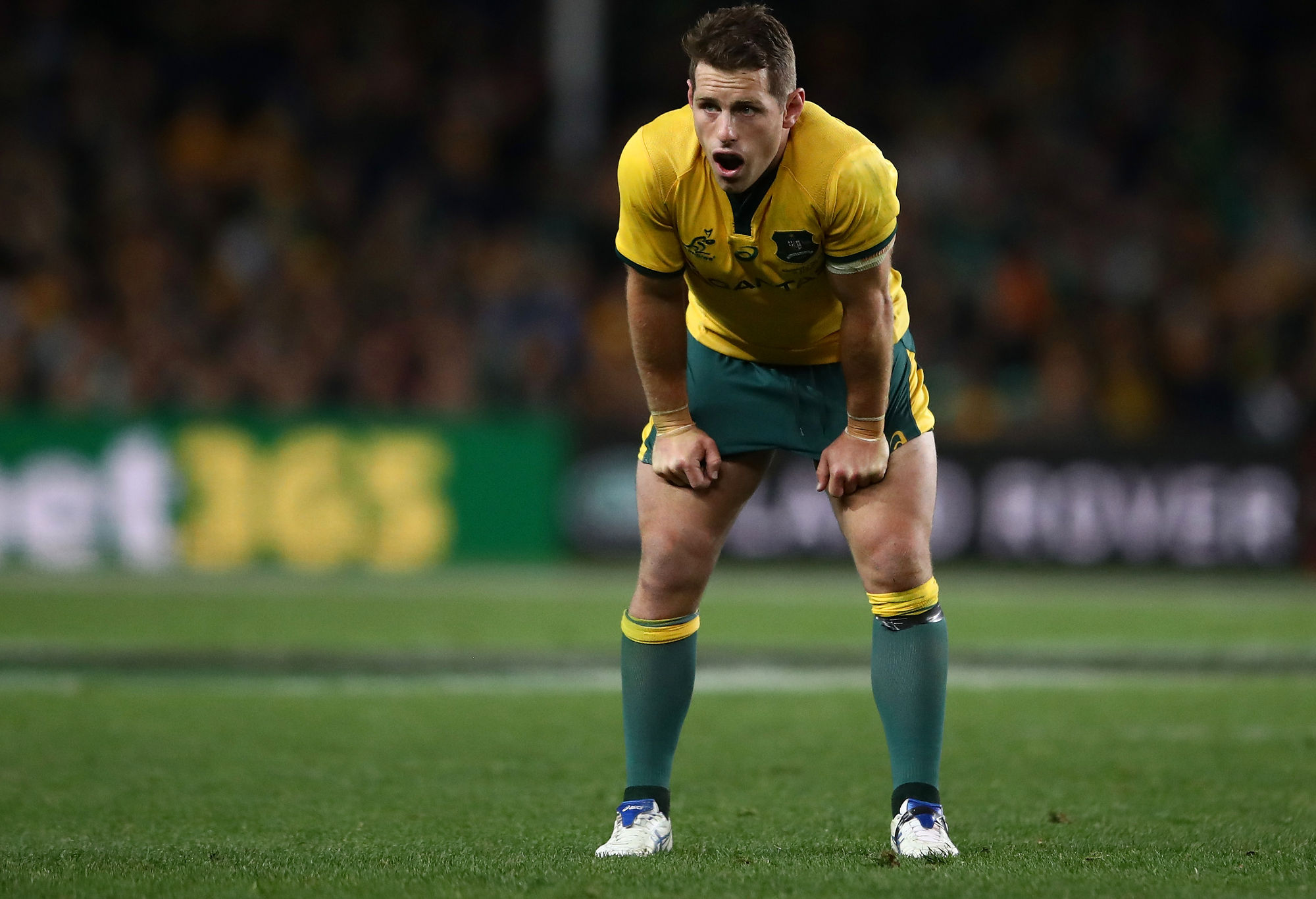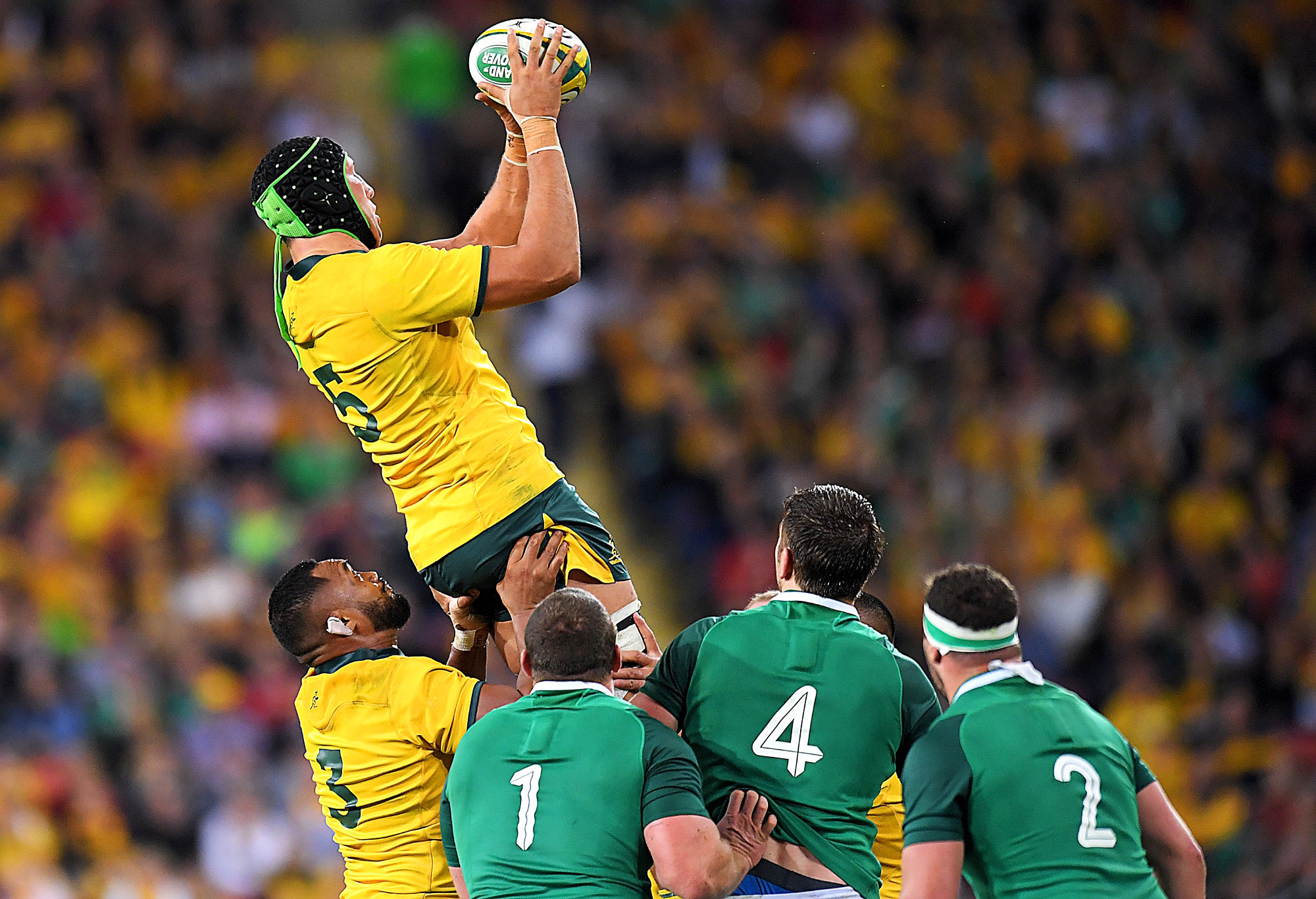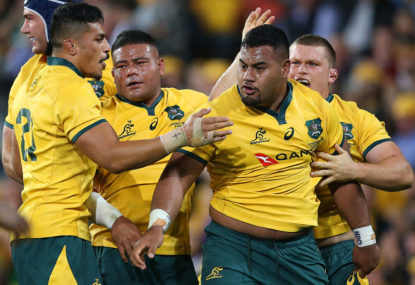A post-match debrief over a couple of beers with a couple of press box colleagues laid out what we’d all concluded in our various write-ups: all three Lansdowne Cup Tests could easily have gone different ways, but despite that, the result we finished with feels about right.
Australia and Ireland were separated just nine points in Brisbane, four points in Melbourne, and four points in Sydney. Both sides finished the series with aggregates of 55 points, highlighting the very obvious closeness of the three Tests.
Yet two Tests to one in favour of Ireland also felt about right. Their general game management – and Johnny Sexton’s in particular – shone in Melbourne and Sydney, and even though they scored half as many tries for the series as the Wallabies, I don’t know that an argument exists for the best team not being the one that held the trophy aloft in front of a record Sydney Football Stadium crowd.
It has been a thoroughly enjoyable, entirely gripping series. And in a weird way – one that would ask you to ignore the general feeling about officiating at the moment – there is something apt about the series being decided by a single moment on the last play of the final Test in Sydney.
If Jacob Stockdale gets a clear and obvious touch on that Bernard Foley pass to three Wallabies outside him in the south-western corner of the SFS, it’s highly likely Australia win the match and therefore the series. And it would’ve been about right.
He didn’t, and so Ireland won. And that was still about right.
The final result – Ireland taking the series 2-1 – was also about right and seemed to be the common prediction-slash-hope among Australian fans going into the series. The Super Rugby form line heading into the series was pointing upwards again, but was the collective momentum of the Wallabies squad good enough to take two Tests off an Irish squad chock-full of guys coming off successful Pro14 and European campaigns?

Bernard Foley of the Wallabies (Photo by Cameron Spencer/Getty Images)
That was always the gnashing feeling. As it was, 2-1 would’ve been a step up on the whitewash suffered at home against England two seasons ago and the dithering performances last June; had you have offered 2-1 a month out, I think most would’ve happily have taken it on the spot.
The Brisbane win changed that. Suddenly a series win was very possible, on the very important proviso that the Brisbane performance could be repeated; a feat that was always going to be difficult knowing the likely changes that Ireland were obviously going to make for the Second Test.
The Brisbane performance couldn’t be repeated for anything more substantial than periods within a half of a game, which played into the hands of Ireland’s – and again, particularly Sexton’s – superior game management.
And thus, we finish at the position most hoped we’d get to in the first place.
But this isn’t a eulogy.
The point in all this is to illustrate the gains in the Wallabies game since this time last year, and to conclude that despite all the obvious issues, the Wallabies aren’t tracking too badly.
If Ireland had thoroughly outplayed Australia across the three Tests, the very obvious concern this close to a Rugby World Cup would be well placed.
But they didn’t, and that should give reason for cautious optimism moving forward. Yes, there is an undoubtedly next-level Test of the Wallabies’ fortitude and new-found belief among the younger brigade coming up just a few weeks after the conclusion of the Super Rugby season. There is no doubt that cautious optimism won’t truly be released until The Rugby Championship and Bledisloe Cup contests play out.
Australia’s play in this Ireland series has been much improved on what we saw this time last year; a combination of stability of selection within the team, well-considered experiments around new players who benefitted from being backed from day one and not immediately cast aside, and a vastly simplified approach to the game that fed into the strengths of the individuals.
The set piece, for sure and certain, is now a genuine strength of the side and from which a reasonable attacking platform can and is being built. The lineout was well-performed throughout, and the scrum has developed to the point where there’s a reasonable debate to be had as to who are the first-choice players in each of the three front row positions.
That debate is fuelled by the quality of the bench performances, with the reserve forwards in particular injecting themselves into games in a manner only previously imagined of a Wallabies bench.
[latest_videos_strip category=”rugby” name=”Rugby”]
Yet despite all these very clear positives, perhaps the biggest positive of all is that there are still significant improvements to be made to and found within the Wallabies.
After the tactical accuracy of the kicking game in Brisbane, it was again consistently inconsistent in Melbourne and Sydney. Despite the periods of forward dominance toward the backend of games, the Wallabies attack still wavered between great and stuttering.
Passes were pushed, handling suffered, tackles were missed, kicks were overcooked, hands were overplayed, and players went missing.
It all happened.
And yet the series still came down to the 240th minute.
The initial disappointment of those final moments in Sydney have given way to a feeling that a good showing during The Rugby Championship could genuinely push this Wallabies side to a new level. We’ve seen enough glimpses during June to know it’s all there waiting to be fused together, if they’re up to the tacks as a collective.

Adam Coleman of Australia wins a lineout (Photo by Albert Perez/Getty Images)
It’s a lost series, and we’re rightly annoyed.
But all is not too bad at all when you look back over a series that seems to have finished with more annoyance about refereeing and commentary teams than of the Wallabies themselves.
And when was the last time we could say that?































































































